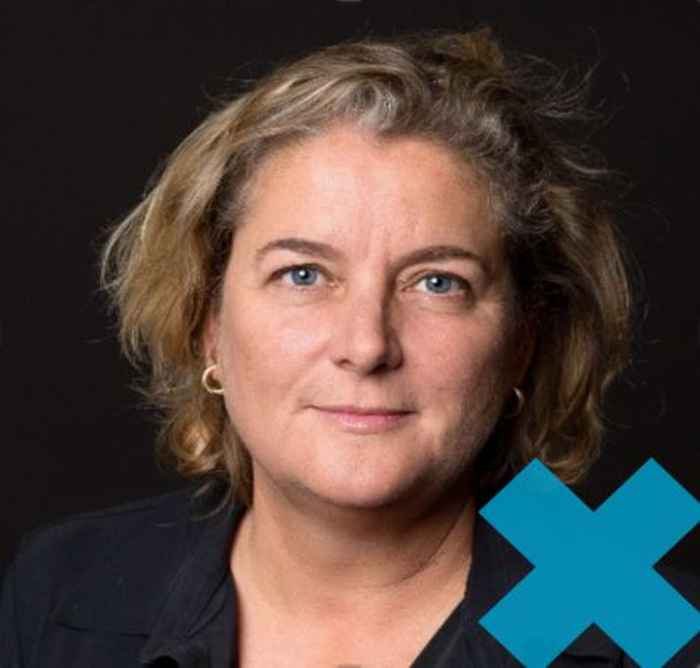Interview with Gerda van Roozendaal, Head of Studies Interdisciplinary at the IIS
23 October 2023

What does that mean, 'Head of Studies Interdisciplinary'?
'As Head of Studies Interdisciplinary, I am responsible for the interdisciplinary curriculum within Beta-gamma; a three-year bachelor's program where the core curriculum focuses on interdisciplinary thinking and students also take courses in other studies. Ultimately, they can choose from 21 majors. I am responsible for core interdisciplinary thinking and developments in the curriculum. That means I ensure that students work step by step toward the interdisciplinary final qualifications they must meet at the end of their studies.'
Was interdisciplinarity something that concerned you before you came to IIS?
'It has always had my attention - I never found it very interesting to think very disciplinary. Before coming to the IIS, I worked for 17 years in the International Relations program at the University of Groningen; first as an associate professor, then as a senior lecturer. And although International Relations is actually pre-eminently an interdisciplinary study, with roots in political science, sociology, law and languages, that was more of a multidisciplinary program. Students got a taste of different disciplines and built some basic knowledge for the purpose of studying international issues, but integrating that knowledge was not a very important part, and there was less emphasis on interdisciplinary thinking.
You can hardly imagine it, but during my own studies in International Relations, it was still thought that actors other than states were unimportant. It was mostly about states and conflicts between them; not about political behavior, or how non-governmental organizations operate internationally. While I have always found that, the search for where disciplinary paths cross, most interesting.'
What is the value of interdisciplinarity, in your opinion?
'The need for interdisciplinary education is ever increasing because of the enormous complexity of the challenges we face worldwide. By continuing to think about issues outside your own field of science, you become aware of the limitations and mono perspective of your own discipline and see what other disciplines can add to understanding developments and solving issues.'
Why did you want to work for the IIS?
'Having an institute like IIS at the university, which itself develops programs with a teaching lab, is unique. It makes IIS education innovative. Usually parties involved in developing education, such as training centers and testing experts, are far removed from education, making it complicated to get added value from a collaboration. Here you have an incredibly active education lab, which publishes and can help develop ideas and programs, literally on the same corridor.'
What do you hope for in the future for the IIS?
'I would like to build the learning lines related to interdisciplinarity - collaboration, integration of different disciplines, critical thinking and reflection - even more strongly in the program, so that we deliver students who can think innovatively, understand that there are differences between their own position and perspective and that of others, and at the same time are able to find commonalities. In addition, I would like to see more attention paid to transdisciplinarity, so that non-scientific actors - for example, people from the social field - also have a role in defining and understanding problems and solutions. Finally, I would like to see a research arm so that young people who are captivated by interdisciplinary studies also have a chance to pursue a PhD in it. We can contribute to a diverse career outlook. Diversity in your own work, especially if you are building an academic career, is very interesting, and it is nice to have a cross-fertilization between teaching and research. I wish that to the IIS, too.'